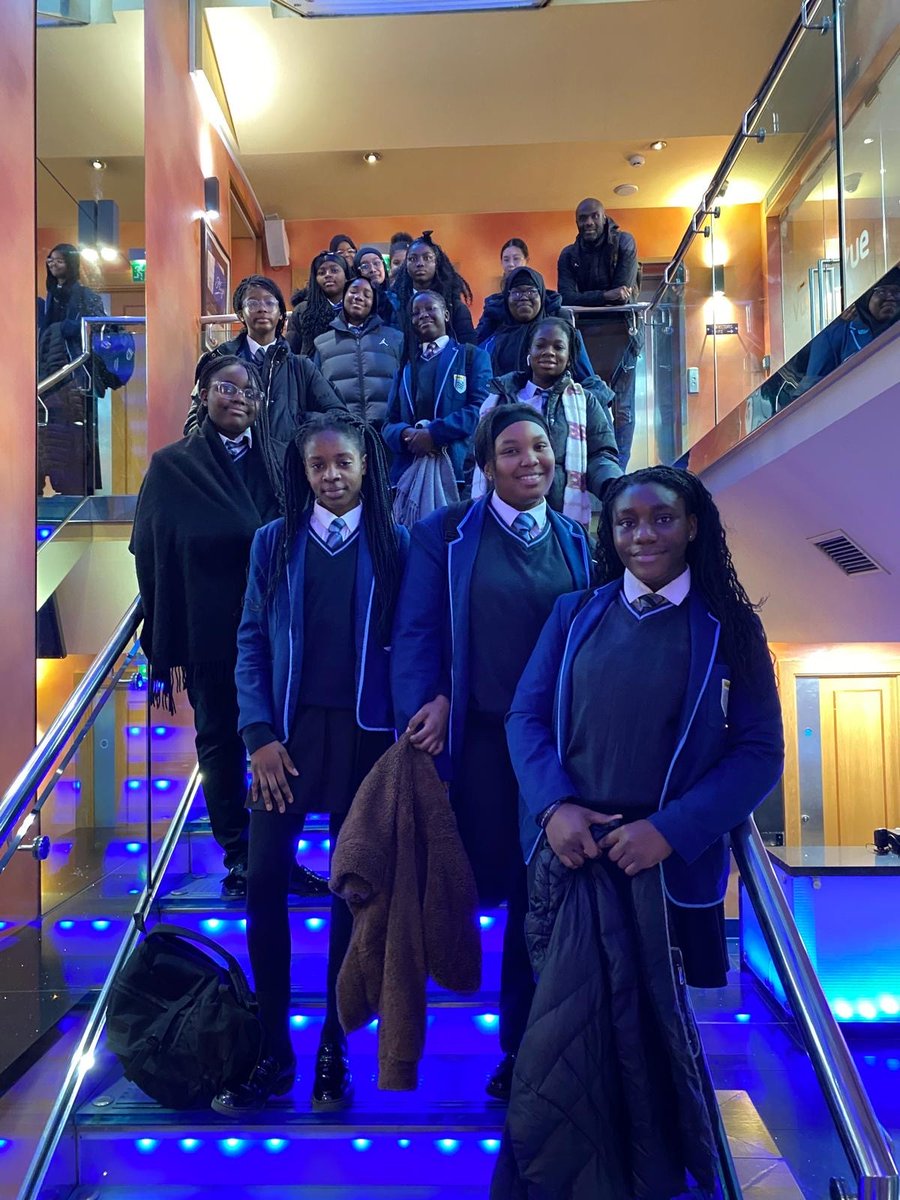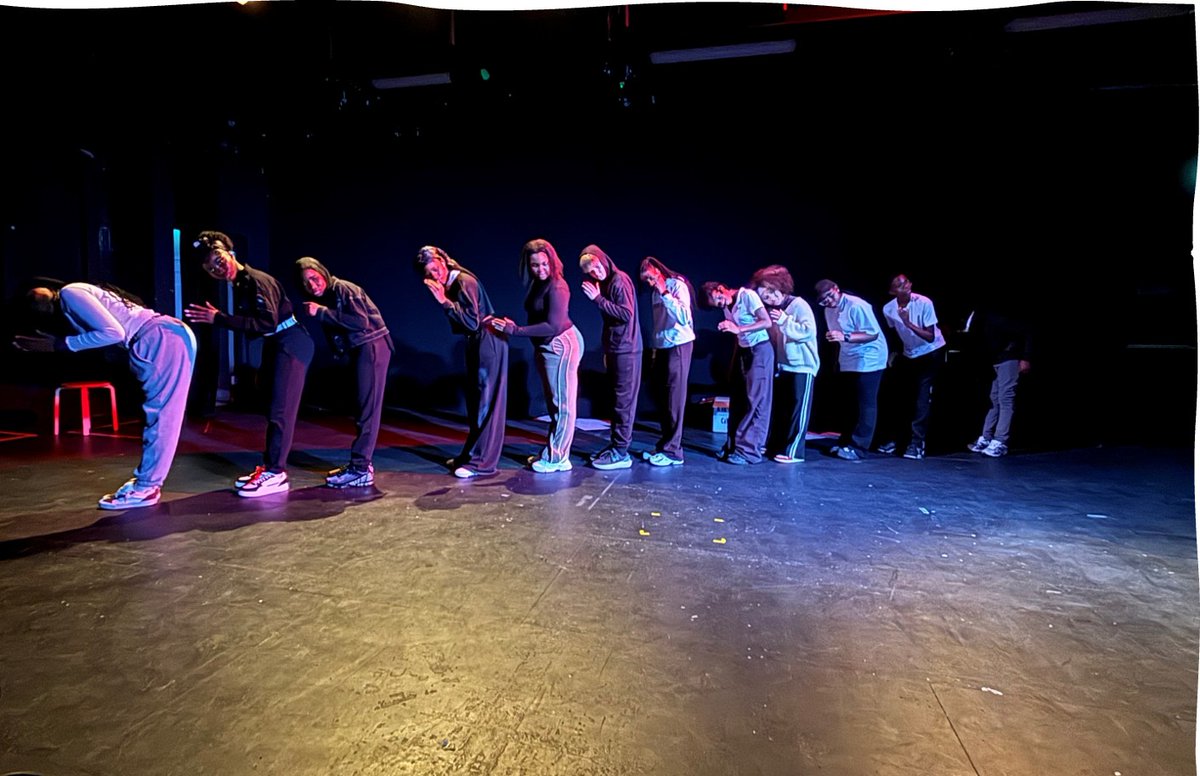
12/12/25
Year 8 explored masks & culture at the Horniman Museum! From handling artefacts to trying on ceremonial masks, students discovered how masks shape traditions worldwide. Their sketches will inspire unique mask designs back at school. @HornimanMuseum #Year8Trip pic.twitter.com/zT54HzAaGI
follow us @peckhamacademy

12/12/25
And then two years later to herald the 25th anniversary @HopeCollective2 was back at @MountviewLDN to work with @lb_southwark and @PeckhamAcademy staging a wonderful tribute show of hope and aspiration #LegacyOfHope pic.twitter.com/56HoYSCSoy
follow us @peckhamacademy

11/12/25
Our students looked amazing in their festive jumpers and brought so much holiday cheer to school today! All money raised will go to the Jamaica Hurricane Relief Fund. #ChristmasJumperDay #FestiveFun #proudtobepeckham pic.twitter.com/20ldHEQ1wI
follow us @peckhamacademy

11/12/25
Year 9 girls had a fantastic reward trip to the Into Film Festival to watch Clueless - the iconic 90s classic inspired by Jane Austen's Emma! pic.twitter.com/5Ffy7cLxkD
follow us @peckhamacademy

11/12/25
RT @MountviewLDN: Generation Next Spring Term (10 weeks) is now open for registration, with workshops returning on Saturday 17 January! 💜…
follow us @peckhamacademy

10/12/25
What an incredible day for our Year 9s at the “Dirty Looks” exhibition! They navigated complex themes with sensitivity and took inspiration from powerful contemporary artworks#Barbican #Art #ProudToBePeckham pic.twitter.com/faMNS0lrkE
follow us @peckhamacademy

09/12/25
Generation Next Spring Term (10 weeks) is now open for registration, with workshops returning on Saturday 17 January! 💜 Sign up now! 👉 https://t.co/vjHbnRD4tO pic.twitter.com/xdwxQZRHzR
follow us @peckhamacademy
08/12/25
RT @TrowsdaleGary: Day of Hope 2025 @BedsVEPP @VR_Network @GM_VRU @LDN_VRU Telling the story of the Hope Hack UK tour!! #LegacyOfHope https…
follow us @peckhamacademy
08/12/25
RT @NIoT_ESL_ITE: Happening this evening! Thinking about becoming a teacher? 🍎 Join our free online webinar at 8PM (GMT) and learn how to t…
follow us @peckhamacademy

08/12/25
20 Year 10 students from Harris Academy Peckham took part in Project Hydra at British Transport Police HQ—a high-pressure decision-making simulation used to train senior leaders. Their engagement & insight were outstanding! #ProjectHydra #BTP #Proudtobepeckham pic.twitter.com/MFNRVEV0WN
follow us @peckhamacademy

08/12/25
Over 5 weeks, our Year 10 Drama students collaborated with @MountviewLDN MA Community & Education cohort to create a powerful piece on riots vs protests. From Brixton to New Cross, they explored history, justice & youth voices—culminating in a stunning performance at Mountview! pic.twitter.com/c6hMa854xB
follow us @peckhamacademy

08/12/25
Our Year 9 Drama students wowed audiences with a bold, thought-provoking piece created in partnership with @MountviewLDN MA Community & Education students. From climate change to AI futures, they explored big questions with creativity, courage & heart. #proudtobepeckham pic.twitter.com/a8X1HYKzFP
follow us @peckhamacademy
08/12/25
RT @HarrisFedArts: So proud of our @HarrisFed @PeckhamAcademy @HarrisGirlsED @HarrisEDB students supporting the @MountviewLDN event today f…
follow us @peckhamacademy
08/12/25
RT @usmxnahmxd1: 07/12/2025 - Day of Hope - Hope in the Square. Today marks Damilola Taylor’s Birthday, we were at the @MountviewLDN to ce…
follow us @peckhamacademy
08/12/25
RT @HarrisFedArts: So proud of our @HarrisFed @PeckhamAcademy @HarrisGirlsED @HarrisEDB students supporting the @MountviewLDN event today f…
follow us @peckhamacademy

08/12/25
Day of Hope 2025 @BedsVEPP @VR_Network @GM_VRU @LDN_VRU Telling the story of the Hope Hack UK tour!! #LegacyOfHope pic.twitter.com/yJoRyvZux8
follow us @peckhamacademy

08/12/25
Happening this evening! Thinking about becoming a teacher? 🍎 Join our free online webinar at 8PM (GMT) and learn how to train with the National Institute of Teaching. 💻 1 hour | Online | Free 👉 Register now:https://t.co/RlYpPADxD6 pic.twitter.com/f1lkQ0RX99
follow us @peckhamacademy

07/12/25
07/12/2025 - Day of Hope - Hope in the Square. Today marks Damilola Taylor’s Birthday, we were at the @MountviewLDN to celebrate, see local talent from @PeckhamAcademy and @lb_southwark showcase the plans for the regeneration of the square outside. We heard from… pic.twitter.com/Sge4KsLdip
follow us @peckhamacademy


